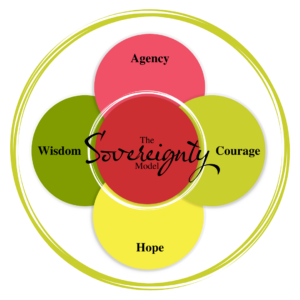The Devastation of Hope
Last week I watched someone I love ascend into the heights of joy only to descend into its complete opposite. All within a span of about six hours. It has been excruciating to witness, acknowledge, experience, and allow. I feel completely helpless, barely helpful, and tongue-tied to say anything that might offer a modicum of comfort. There is no sense-making, no sufficient explanation, nothing that can possibly console.
They sit with the devastation of hope.
In the in-between moments of texting and talking, shedding my own tears, and worrying about them, I have noticed particular snippets of thought flit through my mind. Shards, really. Sharp and glistening daggers of truth.
*****
Hope, as an emotion, an experience, an aspiration can feel dangerous, even foolish.
Why hold onto it when there is the possibility of it slipping through your fingers? Why trust in something good when there is a definite chance that something bad will happen instead? Why have faith with no guarantee that it will be rewarded?
It’s understandable, really.
We have all had moments-and-seasons in which we know hope beyond measure. We let ourselves feel all the emotions of hope-fulfilled, of what it will be like when X, Y, or Z finally happens. We allow ourselves to imagine. We see the future and it is beautiful beyond compare.
Sometimes every one of those emotions, imaginings, and visions come to be and we soak in the gift and grace of it all. And sometimes (it seems, more times), what we hope for does not happen and we berate ourselves for ever believing it would. “I was foolish to think that this could ever be.” “I should have known better than to hope.”
As hard as it is to sit with loss, disappointment, and grief, I don’t know what the alternative is. Well, that’s not exactly true. I do know the alternative: pessimism, disconnection, severely lowered expectations, low-grade cynicism, numbness, all of the above.
And these? It’s tempting to believe that not hoping will keep us safe, that it will prevent us from ever feeling what is as close-to-unbearable as we can possibly get.
But here’s the thing . . .
We are not safe from the realities of life—either the heights of joy or its complete opposite. This IS the reality of life—at least one fully and well-lived: allowing all of it, letting ourselves grieve, celebrating with abandon, knowing profound ecstasy, reeling in pain, everything in-between.
To try to not feel shuts us down and prevents us from really living. My therapist once told me, “The degree to which you try to avoid grief, Ronna, is the degree to which you will not know joy. The reverse is also true: the more grief you let in, the more joy you will know and feel.” (Reluctantly and over a very long time, I came to agree with him.)
And so, given these options, these realities, these truths, I will always, always choose hope. Yes, even the devastation of hope.
*****
The devastation of hope is a marker of just how beautiful our desire is, how worthy, how holy, how profound.
The devastation of hope is an unswerving commitment to what we deserve, what we know-that-we-know-that-we-know, what we will not not believe.
The devastation of hope is the evidence that our longings are worth having, holding, and honoring.
The devastation of hope is what invites us to the depths of grief, the most honest acknowledgement of loss, and the eventual return to hope’s embrace.
The devastation of hope is what enables us to hope yet again.
*****
Part of a text conversation from a few days back:
Are you OK?
Not totally sure. But I will be.
Hope.
The devastation of hope.
Hope, yet again.
And in between every one of these, so many tears. Theirs and my own. Over their sadness and grief, yes; but also in stunned gratitude for their honesty, their courage, their strength, their heart, their hope . . . despite its devastation.
What I am privileged-beyond-measure to witness in them IS the cycle, the ongoing truth, and an open-ended (albeit somewhat reluctant) invitation to a life that is full-to-the-brim with all the feels. Alive. Awake. Accentuated. Excruciating. Glorious. Beautiful. Grievous. Impossible. Amazing. Holy.
*****
Even after writing all of this, I am clear about hope’s danger, even seeming-foolishness. What it costs and what it affords. What it threatens and what it invites. What we suffer and what it summons.
Still, I don’t know how to not hope.
“Hope” is the thing with feathers –
That perches in the soul –
And sings the tune without the words –
And never stops – at all –
~ Emily Dickinson
“Hope . . . never stops – at all . . . “
May it be so.
 Part of being 100% ourselves, 100% of the time is naming these stories and internal texts/beliefs that have shaped us. It’s also demonstrating the wisdom, agency, and courage needed to craft and live the story that is uniquely yours – unhinged from struggle that no longer serves and committed to “struggle” that strengthens and sustains.
Part of being 100% ourselves, 100% of the time is naming these stories and internal texts/beliefs that have shaped us. It’s also demonstrating the wisdom, agency, and courage needed to craft and live the story that is uniquely yours – unhinged from struggle that no longer serves and committed to “struggle” that strengthens and sustains.